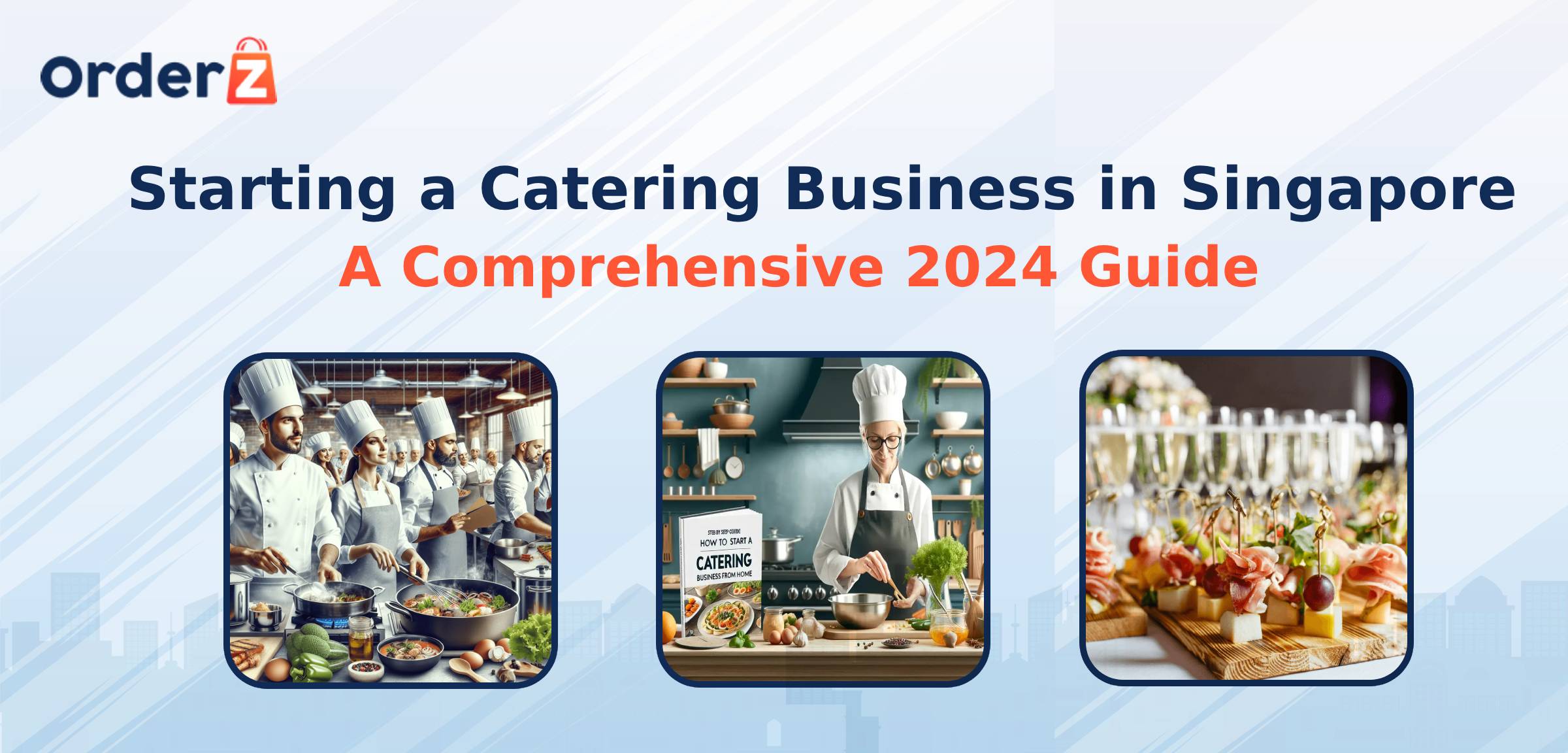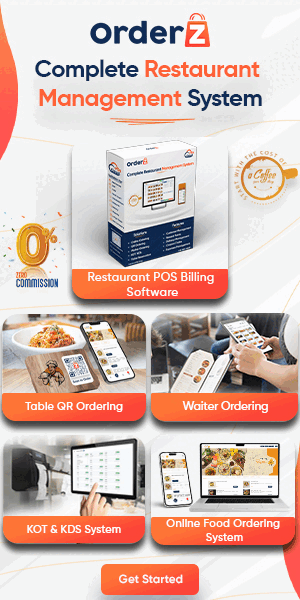Are you dreaming of starting a catering business in Singapore? This comprehensive guide for 2024 will give you all the information and strategies you need to succeed. Singapore is the perfect place for aspiring caterers, with its vibrant food scene. Before you dive in, it’s important to understand the local food industry. We’ll cover everything from regulations to business planning, so let’s get started on your culinary journey!
7 Essential Steps to Start Your Catering Business in Singapore
1. Market Research and Niche Selection

To begin, conduct market research and select a niche. Identify your target market based on demographics or occasions that align with your culinary strengths. Analyze competitors to understand their strengths, weaknesses, and unique selling points. Then, choose a niche such as a specific cuisine, dietary restriction, or event type to make your business stand out.
2. Business Plan Creation

Start with an executive summary that provides a brief overview of your business concept and goals. Follow with a market analysis that explores your target market, competition, and industry trends. Develop financial projections to forecast revenue, expenses, and profitability. Outline your operational plan, including daily tasks like staffing, inventory management, and delivery logistics. Lastly, devise a marketing and sales strategy to attract and retain customers.
3. Setup of a Commercial Kitchen

Select a location that offers convenient access to suppliers and transportation. Obtain the necessary licenses and permits to operate legally. Invest in high-quality equipment that meets health and safety standards. Finally, ensure you have sufficient storage space for both ingredients and prepared food.
4. Menu Development and Supplier Relationships

Design a diverse menu that caters to various tastes and dietary needs. Build strong relationships with reliable suppliers to ensure access to fresh ingredients. For cost control, negotiate favorable deals and manage inventory efficiently.
5. Obtain Necessary Licenses and Certificates

Ensure all food handlers have a Food Hygiene Certificate to maintain hygiene standards. Obtain a Business License to legally operate in Singapore. Secure a Food Safety License to comply with food safety regulations. If providing delivery services, you’ll also need a Vehicle License.
6. Hiring Qualified Staff

Hire a skilled chef to oversee menu development and food preparation. Employ experienced kitchen staff, including cooks and assistants, for food prep and cleaning. Recruit reliable delivery drivers to transport food to clients. Lastly, hire friendly front-of-house staff to handle customer inquiries and orders.
7. Set Up Online Ordering and Management Systems

Create a professional website to showcase your menu and services. Implement an online ordering platform for easy customer interaction. Use inventory management software to track stock levels and reduce waste. Set up accounting software to manage finances, track expenses, and generate reports.
By following these essential steps, you can establish a thriving catering business. Adapt to the dynamic Singaporean food scene to ensure long-term success.
How Profitable is a Catering Business in Singapore?

A catering business in Singapore can be quite profitable. The country’s love for food and its bustling event scene create a strong demand for high-quality catering services.
To maximize profits, consider these factors:
- Target the right market: Corporate events, weddings, and parties are popular choices.
- Price your services strategically: Balance quality, cost, and market demand.
- Efficient operations: Minimize food waste, optimize staffing, and use technology to streamline processes.
- Build a strong brand: Invest in marketing and focus on excellent customer service.
- Manage your finances wisely: Track expenses, control costs, and maintain healthy cash flow.
Challenges and Opportunities in the Singapore Catering Business
Challenges
While the Singaporean market offers lucrative opportunities for caterers, it also presents several challenges:
- High Startup Costs: Setting up a commercial kitchen, purchasing equipment, and hiring staff requires significant upfront investment.
- Regulatory Compliance: The food industry is heavily regulated, and adhering to strict hygiene and safety standards can be complex.
- Intense Competition: The market is saturated with established caterers, making it challenging to differentiate and attract clients.
Opportunities
Despite the challenges, the Singaporean market offers numerous opportunities for innovative caterers:
- Booming Events Industry: The country hosts a wide range of events, from corporate functions to weddings and parties, creating a steady demand for catering services.
- Diverse Culinary Preferences: Singapore’s multicultural population offers a diverse range of culinary preferences, allowing caterers to experiment with different cuisines and dietary restrictions.
- Personalized Menus: Clients are increasingly seeking customized menus to reflect their unique tastes and preferences. Caterers can capitalize on this trend by offering bespoke dining experiences.
- Technology-Driven Solutions: Leveraging technology can help streamline operations, improve efficiency, and enhance customer experience. For instance, online ordering platforms and food delivery services can expand your reach.
Simplifying Your Catering Business in Singapore

Key to Success: Balancing Quality, Cost, and Customer Satisfaction
Profit Margins: Aim for a 10-20% net profit.
Boost Your Profits:
Smart Menu Planning:
- Use fresh, affordable ingredients.
- Control portion sizes to reduce waste.
- Offer premium add-ons (e.g., specialty drinks, desserts).
Efficient Operations:
- Manage your stock to avoid waste.
- Schedule staff wisely.
- Use technology for smooth operations.
Value-Added Services:
- Theme parties and decorations.
- Professional bartending.
- Full-service event planning.
Happy Customers, Repeat Business:
- Personalized service.
- Loyalty programs.
- Positive online reviews.
Remember: The Singaporean market is competitive. Focus on quality, efficiency, and customer satisfaction to thrive.
Licenses Needed to Start a Catering Business in Singapore
Food Shop License
Issued by the Singapore Food Agency (SFA), this license ensures your business meets food safety standards.
Food Hygiene Certificate
All food handlers must complete a basic food hygiene course to comply with Singapore’s strict food safety standards.
Workplace Safety and Health (WSH) Certificate
Necessary if your kitchen employs staff for food preparation and service.
Fire Safety Certification
Required for the commercial kitchen, obtained through the Singapore Civil Defence Force (SCDF).
Startup Costs for a Catering Business in Singapore

The initial investment for a catering business varies but generally includes:
- Commercial Kitchen Setup: SGD 30,000 to SGD 80,000, depending on equipment and location.
- Licensing and Certification Fees: SGD 1,000 to SGD 2,500.
- Marketing Costs: SGD 3,000 to SGD 10,000.
- Operational Costs: Staff wages, utilities, and ingredient sourcing.
Application Process for Catering Business Licenses in Singapore

- Register your business with the Accounting and Corporate Regulatory Authority (ACRA).
- Submit applications for the Food Shop License, Food Hygiene Certificate, and other necessary certifications through GoBusiness Licensing.
- Complete inspections and meet regulatory requirements before receiving final approvals.
Food Hygiene Officer (FHO) Certificate: A Quick Guide

A Food Hygiene Officer (FHO) certificate is essential for anyone who supervises food preparation or handling in Singapore. It ensures that food businesses maintain high hygiene standards to prevent foodborne illnesses.
To get certified:
- Enroll in a course: Sign up for the WSQ Food Safety Course (FSC) Level 3.
- Complete the course: Learn about food safety principles, HACCP, hygiene practices, and more.
- Pass the exam: Successfully complete the course assessment.
Why is it important?
- Legal requirement: Many food businesses need FHOs to comply with regulations.
- Ensures food safety: FHOs monitor hygiene practices and prevent foodborne illnesses.
- Enhances business reputation: Shows commitment to food safety and customer well-being.
- You can enroll in the course through various training providers like Shatec, Assure Safety, or Coursemology.
How OrderZ Can Streamline Your Singaporean Catering Business
Looking to streamline your catering business and free up valuable time to focus on what matters most – creating delicious food and exceeding customer expectations? OrderZ can be your secret weapon in the competitive Singaporean market.
Here’s how OrderZ can help you:
Effortless Online Ordering:

Offer a user-friendly online ordering platform for your catering services.
Customers can conveniently browse your menu, customize their orders, and schedule deliveries – all at their fingertips.
Reduce manual order processing and free up your staff to focus on other tasks.
Centralized Management System:

Manage all your catering orders in one place.
Track order details, receive real-time notifications, and streamline communication with customers.
Reduce the risk of errors and ensure a smooth catering experience for your clients.
Inventory Management:

Optimize your inventory management with OrderZ’s tools.
Track ingredient levels, prevent stockouts, and reduce food waste.
Save money on unnecessary purchases and ensure you always have the necessary supplies on hand.
Professional Website Creation:

Build a professional and mobile-friendly website showcasing your catering services and menus.
OrderZ website builder allows you to easily customize your website and attract new customers.
Enhance your brand image and establish yourself as a reputable catering business.
Marketing and Customer Engagement:

Leverage OrderZ’s marketing tools to reach a wider audience.
Promote your catering services online and attract new clients.
Offer loyalty programs and discounts to build customer relationships and encourage repeat business.
By utilizing OrderZ, you can:
- Save time and resources
- Increase efficiency and productivity
- Reduce operational costs
- Improve customer service
- Grow your catering business
Ready to take your catering business to the next level? Sign up for a free trial of OrderZ today and experience the benefits of a streamlined and efficient catering operation!
Conclusion
Starting a catering business in Singapore is a rewarding venture, but it requires careful planning and execution. By following the steps outlined in this guide, you can increase your chances of success.
Remember, the key to a thriving catering business lies in offering exceptional food, efficient service, and a strong understanding of your target market. Stay updated on industry trends, adapt to changing preferences, and continuously strive for excellence.
With dedication, hard work, and a passion for food, you can build a successful catering business in Singapore.





